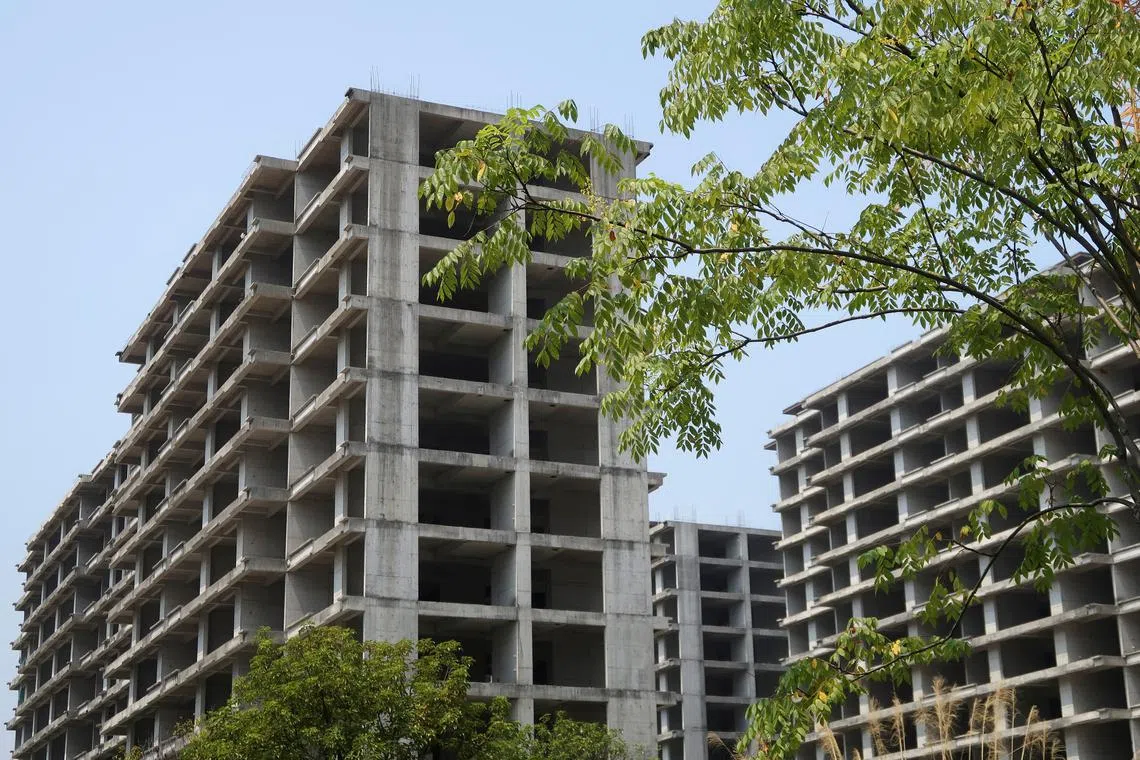For subscribers
China’s diminishing returns
China’s economic slowdown suggests that housing and office prices are headed for a steep fall that could take down banks and local governments, leading to prolonged stagnation
Sign up now: Get ST's newsletters delivered to your inbox

Prior to the last couple of years, the spectacular rise in Chinese housing prices was underpinned by ultra-fast growth in incomes.
PHOTO: REUTERS
CAMBRIDGE – The Communist Party of China’s 20th National Congress, which gave President Xi Jinping an unprecedented third term as general secretary, also featured a leadership shake-up that replaced market-oriented technocrats with Xi loyalists, raising questions about China’s plans for its faltering economy. Excessive state control, after all, is a tried-and-true recipe for becoming mired in the middle-income trap that Chinese leaders have long vowed to avoid.
The breakneck pace of state-guided investment in real estate and infrastructure – China’s go-to stimulus strategy – has generated diminishing returns, with slowing economic growth implying an inevitable fall in housing and office prices.


